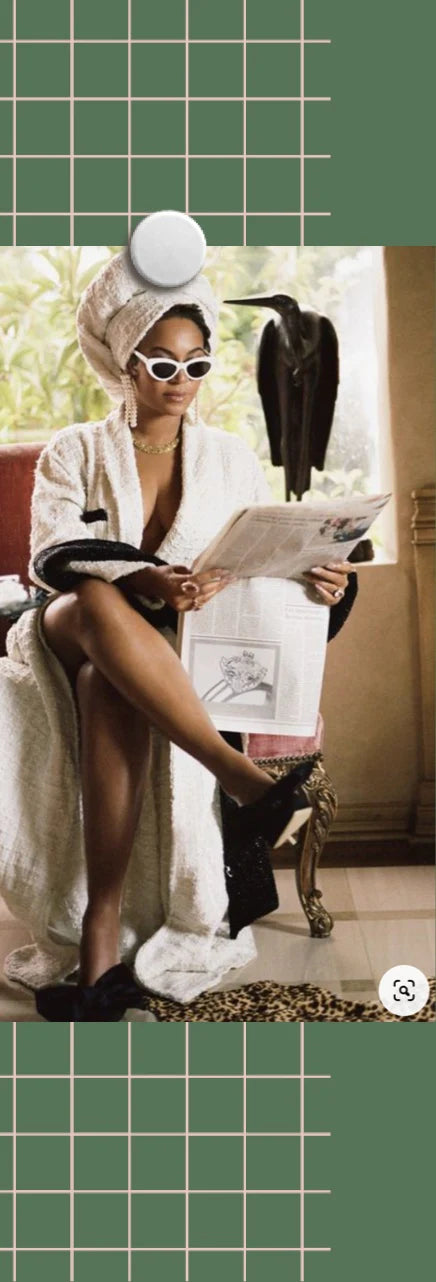







The Bank of…Me?

The Big Share - by Anonymous
Your friend’s salary hit triple figures. Another just bought a $900k home in the suburbs. According to your Instagram feed, everybody except you went on a three-month long summer holiday in Europe last year. There’s that little twinge in your gut, the one that tells you you’re a terrible person because internally you’re screaming, “how the F*CK did they afford that?”.
It feels ugly and shameful to feel envy, especially when it’s towards the ones you love.
Envy comes along with a starter-pack of emotions. It is, unfortunately, a universal experience we have all inherited thanks to early human evolution. There’s no need to feel ashamed of a feeling that’s as natural as feeling joy. However, therapists everywhere can likely confirm that our chronically online world of social media-derived FOMO is feeding these green-eyed monsters with a little too much food.
The Bank of…Me?
My parents had me and my siblings when they were very young, with no high school degree, and certainly no financial education. One parent suffered from mental health struggles and wasn’t able to work. I’m 24, however my older siblings still live at home as they have highly stigmatised cognitive difficulties. Thanks to family helping my parents into a house, I went to a rural primary school and got a scholarship to an expensive private high school. After school, I went on to university thanks to scholarships, and postgraduate study thanks to more scholarships. As a result, the networks and friends I’ve made pretty much all come from wealthy families. While I’m not claiming to be impoverished or free from privilege, my upbringing seems pretty unique by comparison. If my peers aren’t obviously wealthy, they’re quietly wealthy. They reap benefits from the Bank of Mum and Dad like a phone plan, free health insurance, paid dentist appointments, and expensive Christmas presents. I’m not saying if you have those things available to you, you should take them - it’s just something I don’t have in common with my peers.
Am I ahead, behind, or somewhere in the middle?
Even now, having learned so much about finances, I find it difficult to place exactly where I should be, and how I compare to the wider population in my age group. According to Stats NZ data from June 2022, the median hourly earnings are as follows:
- For 20-24 year olds - $24.00
- For 25-29 year olds - $28.00
- For 30-34 year olds - $32.00
- For 35-39 year olds - $33.56
You get the picture. When I look at those stats I think, hey! I’m doing good! However, if you look at median net worth statistics, my financial status doesn’t look so impressive. And when I say not-so-impressive, my net worth is lower than the median of a 15-year-old which is nice and grounding for the ego. The more I dug into this I realised that statistics only go so far, and they aren’t really reliable for determining your financial position - they certainly don’t tell the full story. In my case, my low net worth is due to my rather large student loan. A debt I couldn’t avoid even if I wanted to and since we attach power, success, respectability, and other moral attributes to the “having” or the “not having” of money - finding out you’re in the “less-than” group, doesn’t feel great.
Envy comes from constantly comparing “upwards” to what we believe other people have, that we don’t. Sometimes, without any snobbishness, it’s good to zoom out and try looking at the advantages you do have. I have to remind myself that I’m only feeling less-than relative to what I know. The reality is that if I can afford to heat my home, buy fresh fruit and veg, pay my electric bill and afford other essentials, I’m more privileged than 1 in 5 tamariki Māori, and 1 in 4 Pasifika children living in material.
Strategies for dealing with your envy
We know unequal privilege is a given. We know it’s still easy for us to feel inferior to our peers. And we understand that financial envy is an inevitable feeling that everyone (whether they care to admit it or not) will experience from time to time. So how do we cope when financial envy shows up? Here are 8 things I’ve found helpful when dealing with the ugly green monster.
- Don’t assume you know someone’s story.
I often catch myself back-calculating how someone could possibly have afforded the expensive things they boast on their Instagram feed. The internal dialogue goes something like this…“Is her lush wardrobe from credit card debt?” “Does she know something about saving money that I don’t know… how on earth is she affording to travel like that?” “Why is she always at expensive restaurants… Am I earning way less than her?”.
If you ever find yourself in a similar spiral - notice it. Healthy curiosity is one thing, but constantly comparing your financial situation to others, can quickly turn to happiness-rotting analysis. Remember that you have no idea what tradeoffs they had to make, or difficulties they’ve had to overcome. Maybe they’ve gone without takeaways for 5 years, swapped to instant coffee, or biked to work for years to afford that YSL bag.
Sure, they might also have a trust fund that drips into their account every month, but it’s not our job to be the judge. Undermining or pedestooling does not make us any smarter or better off - just as their success does not diminish our success. Send love and light, always. It’s as good for you as it is for your relationships.
And if that fails you, repeat the wise words of Charlie Munger (Warren Buffett’s business partner) until you believe it - “There is nothing more counterproductive than envy. Someone in the world will always be better than you. Of all the sins, envy is easily the worst, because you can't even have any fun with it. It's a total net loss.”
- Benign envy can be a good thing.
There are two types of envy: benign and malicious. Benign envy is where another person’s situation is motivating and this is the kind we can lean into. For example someone gets a promotion and you feel envious, but you’re motivated to work towards getting one yourself. This kind of envy can be constructive. If you envy someone, it means you probably see their status and achievements as something relevant that you could . It can act as a good reminder to what you want to do, and where you want to be in life. Did a friend save $50k, and you felt envious? Ask for their savings tips! See this person as an example and an inspiration, not a villain. Compliment them genuinely, reach out to them, find out how they did what they did. Use your envy as motivation.
- Breathe, and redirect your envy.
Feeling envious does not make you a bad person. Recognise the feeling, and don’t let it turn into malicious envy. That’s the kind that fuels hostility, drives people to make snide remarks, and even troll online. Don’t be that person. Say your friend Sally gets a pay rise, and you feel a little envious. Rather than expecting her to pay for your bill because ‘she’s just got a pay rise’, spend the dinner asking her how she approached the pay rise. Learn from her - congratulate her. Reappraise the envy, and be happy for Sally, even if it’s a wage you wish you earned. Remember that external possessions can be taken in an instant, your internal dialogue and virtues cannot.
- Gratitude is the antidote to envy.
I’m grateful for my life - my job, the opportunities I have, my friends and my partner. On one hand I wish I lived in my Pinterest board. Admittedly, I would love for my home to be decorated beautifully, but on the other hand I recognise that I’m not willing to compromise my financial future to make that happen. The second-hand boots I picked up the other month are my favourite purchase ever, and they were well within my budget. Not everything beautiful has to drain your bank account. Think about the things you already have that you love, and take a break from the relentless pursuit of more. You win once you decide that you’ve won - the solution to conquering envy is being satisfied (and grateful) with what you have. And for what’s within your budget.
- Focus on YOUR goals and YOUR accomplishments.
I’m so proud I paid off my pay-later debts, and stayed off them. I’m proud of starting little by little on an investment portfolio, and I’m proud that I have enough funds to pay for an emergency if that trusty old car was to break down on me. These are all things that were goals of mine one or two years ago. Ignore the outside influences of the rat race, and don’t be fooled into thinking you have to tick everything off all at once. Focus on the success you want to pursue, and remember that you are not in a race; you are on a path that is yours alone.
- Getting what you want won’t be the cure.
Envy is an insatiable beast, so just reaching the goals you want to succeed, won’t quell it. Why are millionaires trying to one-up each other with bigger houses, flashier weddings, fancier yachts? If money solved everything, wouldn’t you not give a toss by that stage? There’s always going to be someone smarter, prettier, richer, or more successful. Money envy won’t stop just because you’re earning more than you used to. You don’t need to get yourself into Afterpay debt, or have a picture-worthy vacation planned to keep up with the Joneses of Instagram.
- Be transparent.
The culture of financial secrecy that we inhabit in Aotearoa can make us all feel like we’re alone when we’re struggling financially, like we must be failures compared to those around us. While it may not be a direct relief for your envy, being more open about finances can help to change the wider culture around money. When my friends and I talk about our salaries, I realise I’m not as far behind as I may feel, or how much I deserve to be paid for my experience. If a mate overseas shares their trip budget to me, I get a better picture of what it takes to fund an OE. It helps all of us to talk and to share knowledge.
Final take-away
If financial envy is getting you down, it’s totally ok to logout of LinkedIn for a bit. Remember that there’s plenty of wealth to go around in this world. Someone else having something good, or something you want, doesn’t take that chance away from you. In the words of Billy Joel: slow down, you’re doing fine.
Get in touch with The Curve if financial envy is something you struggle with, if you have more strategies to recommend, and if this article helped you!


